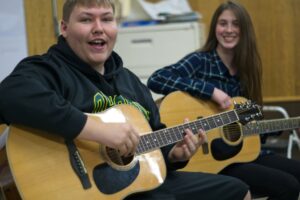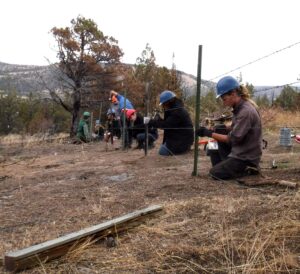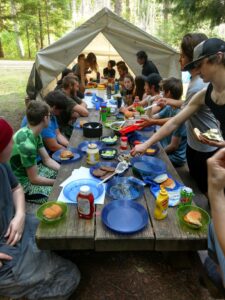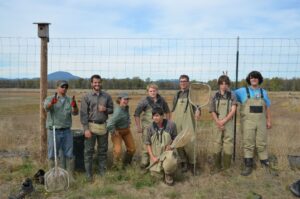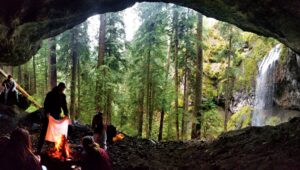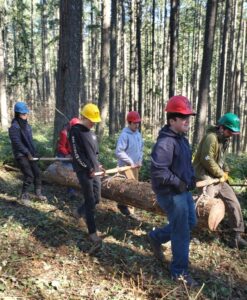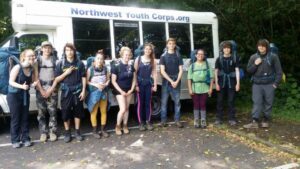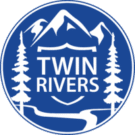Welcome to Twin Rivers Charter School
Twin Rivers Charter School (TRCS), part of Northwest Youth Corps, is a public school chartered by the Eugene 4J School District. TRCS serves students from 8th to 12th grade who are ready to achieve academic success beyond a traditional classroom environment.
No other school travels as much, goes as far, or takes on more challenges than Twin Rivers Charter School. Instruction is hands-on and place-based, incorporating classroom learning, field studies, and work projects. If we are studying it, we want to go see it, to experience it. When we study oceans, we go to the coast, when we study climate change we go see the impacts of glacier melt. These experiences help connect classroom learning to the world and in so doing create connections in our students’ brains.
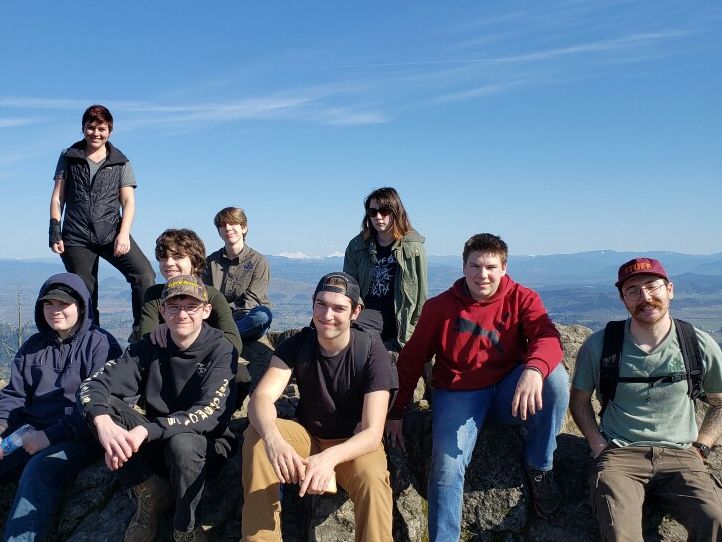
TRCS Curriculum
Using a cooperative, team-based format, students complete graduation requirements and participate in hands-on learning that is structured around the completion of conservation projects, field studies activities and outdoor recreation. Students rotate between outdoor field studies projects and classroom instruction. Classroom and field study educational activities are complementary and integrated. Curricula include resource management issues, conservation and environmental studies as well as science, math, language arts and social studies.
An innovative curriculum connects field study with math, science, language arts and social studies. Students apply what they learn, and work as members of a team to complete projects such as building trails, planting trees, restoring wetlands and streams, improving parks and completing classroom projects.
TRCS earn a traditional high school diploma, requiring 24 credits, and can earn up to 8 credits per school year. Due to the daily nature of the TRCS programs, youth need to live in Lane County to participate and provide their own transportation to and from school.
We Go Farther
Whether we're camping under the stars, preparing our own farm-to-table school lunches, clearing trail from storm damage, or searching for Bigfoot, we do things differently at Twin Rivers. If we are studying it, we want to go stand on it, feel it, smell it, experience it to its fullest. That's how we think our students learn best. This approach allows us to dig deeper into our academic learning and take our understanding farther than we thought possible.
By the Numbers
16 students in an average class 1 to 6 staff to student ratio 4 weeks spent camping each year 15,000 miles traveled per school year
Career Pathways
Twin Rivers Charter School prepares youth for the workplace by emphasizing basic skills and career readiness, while providing a solid academic foundation for students interested in pursuing a college education. Students will gain first hand experience in Outdoor Recreation and Natural Resource Management fields, opportunities to visit colleges and universities, meet representatives of the building trades, and participate in internships and field experiences
